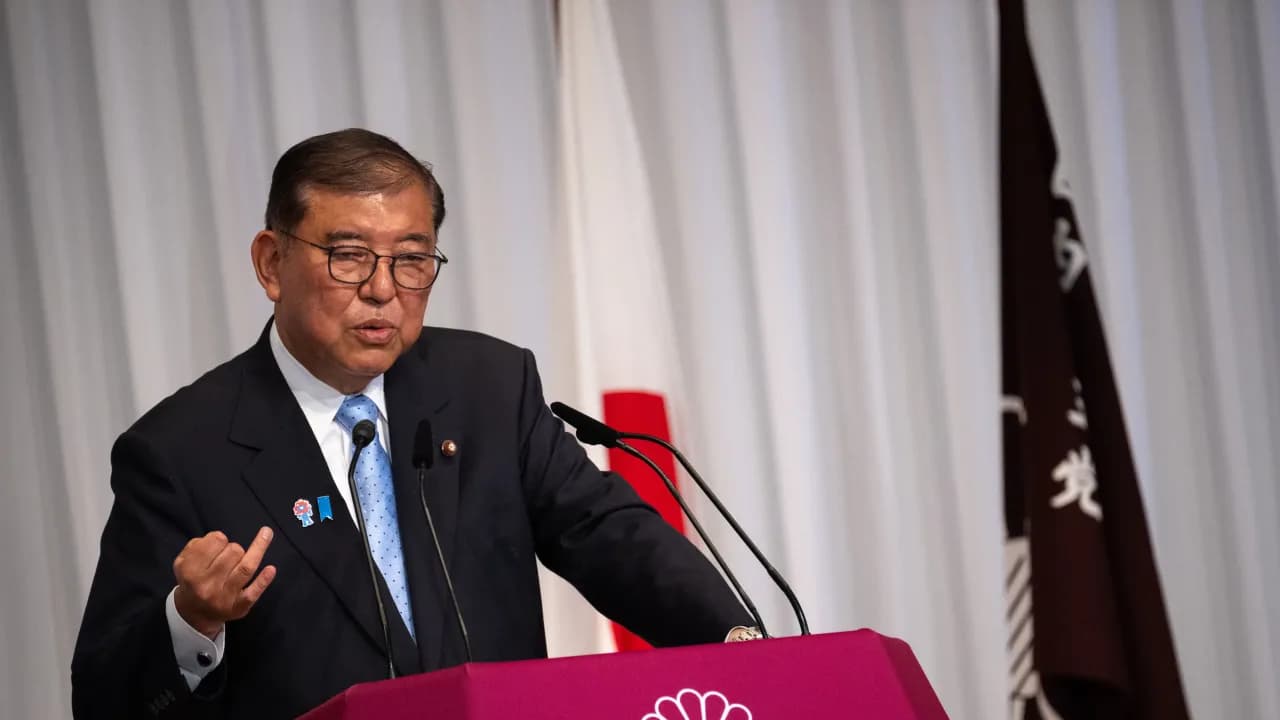Japan is weighing a potential extra budget to offset the economic impact of U.S. tariffs, even as Ishiba faces pressure from opposition parties to cut sales tax and boost stimulus.
Japanese Prime Minister Shigeru Ishiba called the recent US-Japan trade deal a “win-win” for both nations, but cautioned that implementing the agreement may be harder than reaching it.
“Some say that carrying the trade deal out is harder than agreeing on it. I humbly seek your continued support on this,” Ishiba told lawmakers during a parliamentary session on Monday, according to a Bloomberg report.
Chief trade negotiator Ryosei Akazawa acknowledged concerns over the lack of a written agreement, saying, “Having something on paper would be helpful.” He noted that similar deals with the EU and South Korea also lack formal documentation.
The agreement, struck last month, reduced the threat of sweeping U.S. tariffs by setting a 15% levy on Japanese imports, down from the previously threatened 25%.
However, there’s still no timeline for when auto tariffs, currently totaling 27.5%, will be lowered, leaving Japan’s top export sector in limbo.
Ishiba, who faces mounting pressure after a poor showing in July’s upper house election, has vowed to stay on to see the deal through. “We should first devote all our efforts to properly lowering automobile tariffs,” he said, calling it a national interest.
Amid calls from opposition parties to ramp up stimulus and cut Japan’s 10% sales tax, Ishiba said the government is open to compiling an extra budget, potentially in an extraordinary session this September, Reuters reported.
Analysts expect such a package could total up to 10 trillion yen ($68 billion), which would add to Japan’s already record 115.5 trillion yen budget and its debt load, now at 250% of GDP, the highest among major economies.
Despite fiscal concerns, a JNN poll over the weekend showed Ishiba’s cabinet approval ticking up 4 points to 36.8%.
But his Liberal Democratic Party’s support slipped slightly to 20.4%, while right-wing Sanseito rose to 10.2%, now the second-most popular party.
On Stocktwits, retail sentiment for the SPDR S&P 500 ETF Trust (SPY), Invesco QQQ Trust (QQQ), and iShares MSCI Japan ETF (EWJ) was ‘neutral.’ Message volume was rated ‘high’ for SPY and QQQ, and ‘normal’ for EWJ.
So far in 2025, EWJ has outperformed its U.S. counterparts, rising 10.5%. Meanwhile, QQQ is up 8.6%, and SPY has gained 6.3%.
For updates and corrections, email newsroom[at]stocktwits[dot]com.<
